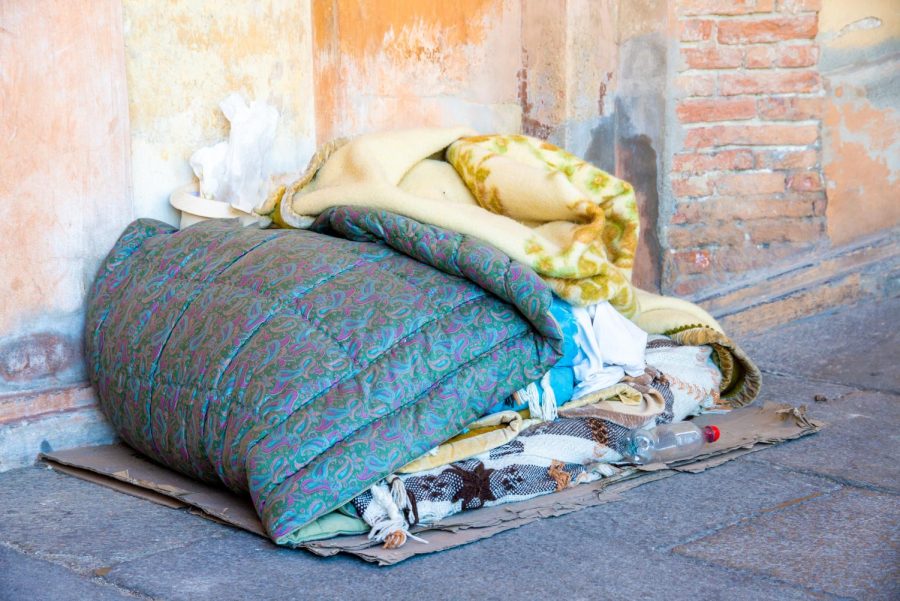Opinion | Unhoused residents deserve to be heard
Recent rhetoric and policy changes in Iowa call into question whether our unhoused neighbors are considered a valued part of our state and local community.
September 18, 2022
The City of Dubuque recently changed its policy on how police interact with and evict unhoused people from their encampments or other housing structures.
It is troublesome to think how this policy could spread and cause negative effects for unhoused populations in other towns in Iowa.
Before the onset of the pandemic in 2020, roughly 2,700 Iowans per day experienced instability in their living situation. The risk of homelessness for Iowans has increased with the spread of COVID-19 and the derecho in 2020.
Because the rate of homelessness is only counted by the government in a few, usually ineffective ways, such as through census data or indirect estimations, the best estimated impact of current events on the unhoused population is likely to be unknown until 2030.
Forced to move their belongings and temporary housing sites with only a few days’ notice, some unhoused folks in Dubuque had to relocate miles away from where they were already established.
While the Dubuque City Manager Cori Burbach said this is a move to make both the unhoused and housed residents of the city feel safer, it’s obvious only one side of the narrative is being taken into consideration by officials.
Similar to recent actions in Dubuque, Iowa City leaders and organizations have not always thought about the perspective of being unhoused when making decisions impacting the wider community.
The City of Iowa City webpage reads, “Diversity enriches our community with unique perspectives and variety of thought. Who better to welcome you to our area than folks who call Iowa City home.”
Between fiscal 2014 and 2019, a reported $4.1 million dollars was spent by the Iowa City City Council to improve conditions for Iowa City residents experiencing homelessness. Social services, mental health outreach organizations and clinics, as well as temporary housing were budgetary aims.
However, within this same time span, actions conflicting this mission were city approved.
The 2018 bench project installed dozens of new benches in the pedestrian mall. Unfortunately, the multi-million dollars invested was spent on benches with metal dividers placed every few feet apart, making them difficult — if not impossible — to sleep on.
Current Iowa City loitering and property storage codes create potential hardships for those without permanent residences to maintain any quality of living or transportation for belongings for people without proper storage.
Resources like Shelter House, one of just a handful of temporary housing organizations in Iowa City, exist to assist anyone experiencing homelessness in the area.
While places like Shelter House are essential to equity for anyone unhoused, one policy at this specific shelter continues harmful stigmas: although approximately 38 percent of chronically homeless people live with addiction and/or other mental health disorders, Shelter House maintains a strict policy that drugs or alcohol are not allowed on their property.
In Des Moines, owners of Exile Brewing Company have recently garnered activist attention after public complaints made about unhoused people setting up tents and existing near their property.
“Our goal is to cultivate a thriving community by working with organizations that focus on an active lifestyle, health, conservation, and community improvements. We do this through … using our brewery as a platform to create awareness within our community,” reads Exile Brewing Company’s mission statement.
Actions like these call into question whether our unhoused neighbors are truly respected and heard in Iowa.
In Iowa City, we all need to do more to support one of the most marginalized and vulnerable groups. Pay attention to the underlying intentions of politicians and those making decisions for the community, especially with the 2022 gubernatorial election occurring in November.
Doing more can simply be saying hello, offering a smile, or sitting for a conversation if you have five extra minutes. Letting others know they are valued disrupts systems so well-tuned to oppression and silencing the voices that have a right to be heard.
Columns reflect the opinions of the authors and are not necessarily those of the Editorial Board, The Daily Iowan, or other organizations in which the author may be involved.














